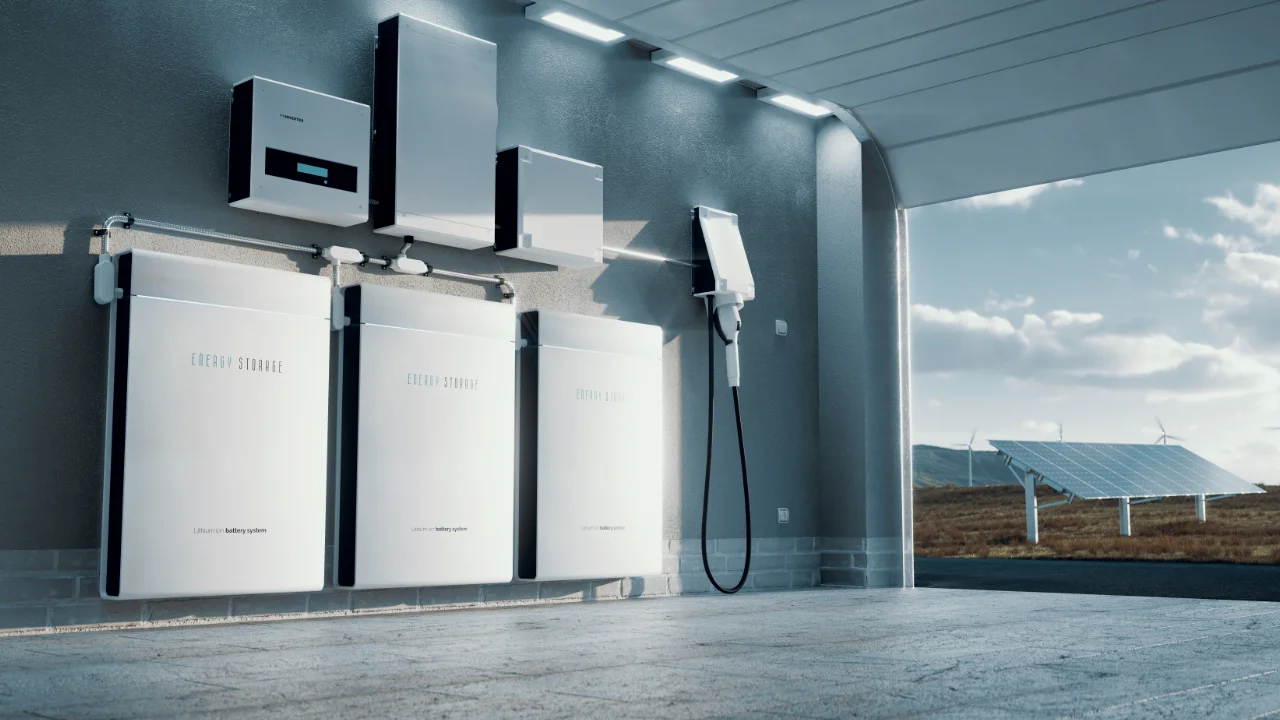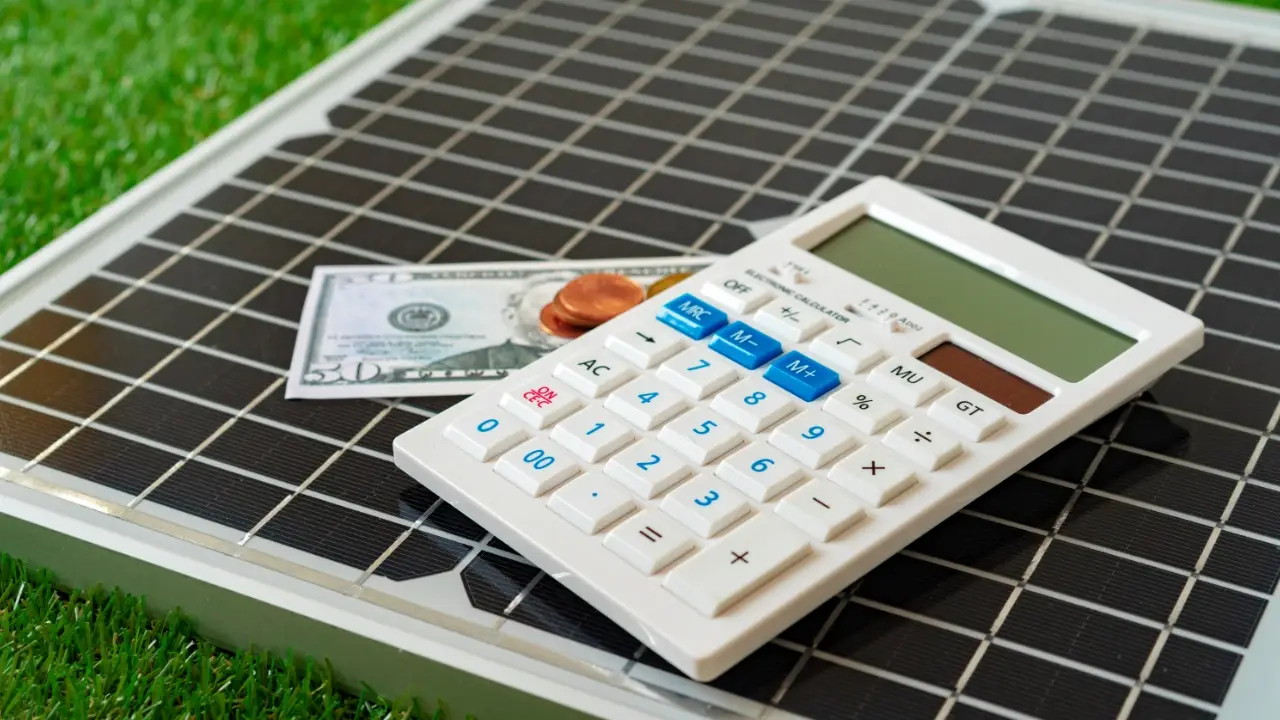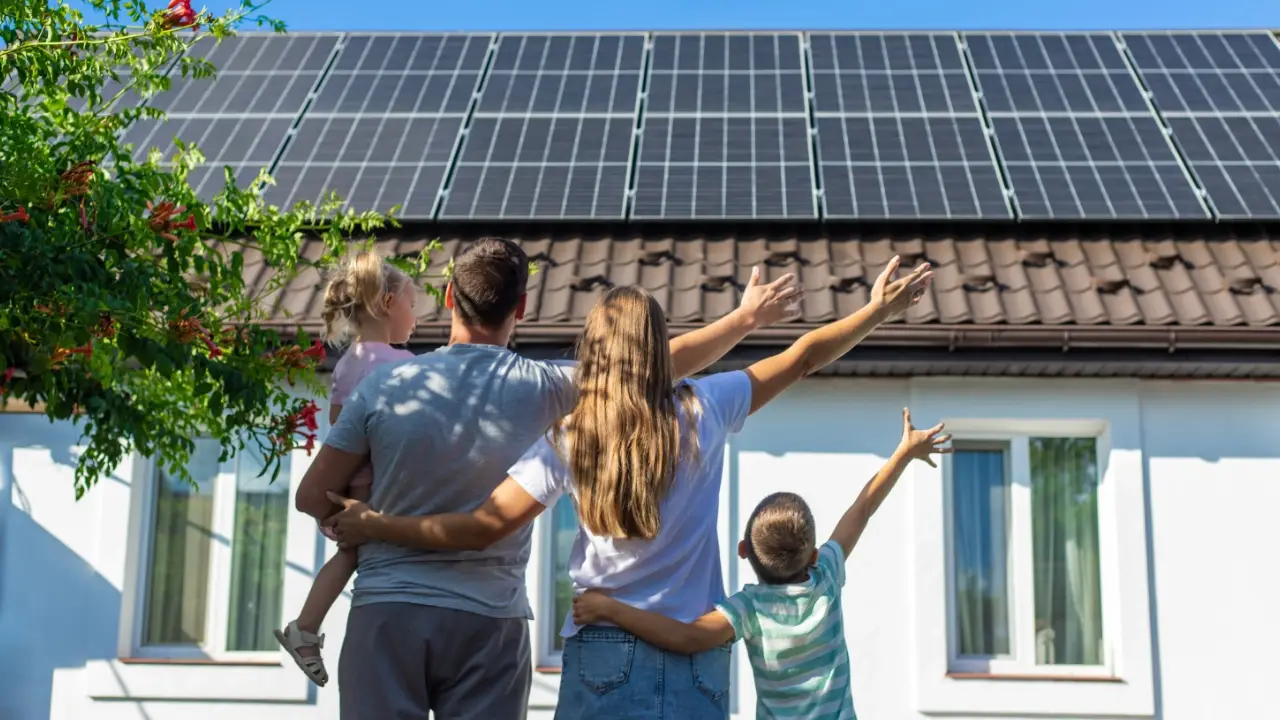Installing Solar on your home is always a smart decision. When you consider the Federal Tax credits, local utility Net Metering and additional State Tax Credits available, installing solar on your home or business is more affordable than ever.
Depending how you decide to finance your solar you can at the very least, freeze your energy costs at current levels forever and possibly eliminate your electric energy costs all together.
Smart solar customers may also be interested in adding an extra layer of energy security by creating their own solar energy storage. Solar battery backup is important if your goal is to protect your home or business from the consequences of the increasing frequency of power outages.
Most people don’t know that Solar Systems require AC power to operate and without a Generator or better, Solar battery storage, your solar system will not operate during power outages.
If it is important to you that you be prepared for ever increasing power disruptions, then adding a Generac Whole Home Generator or Battery storage with your solar system will ensure that your critical home and business equipment like heating and cooling systems, refrigerators, freezers, lighting, health equipment and even security systems remain operational during power outages.
What is a solar battery backup?
Solar panels convert sunlight into electricity, while backup batteries store that electricity for later use. During the day, excess solar energy can be stored in the batteries and once the batteries are fully charged, the solar system can export excess energy back to your grid penny bank to be used when needed, in most cases at no additional cost. Day or night Batteries can be called on to power your home or business and provide you with uninterrupted power to your home.
A solar system combined with Battery backup offers a unique advantage to the owner. With Battery backup, when there is an outage while the sun is still shining, the solar gets the power it needs from the battery and the solar system can continue to operate as if nothing happened at all. Combining a Battery backup to the solar system provides continuous power during an outage providing home or business owners full time energy security when the grid goes down.
Solar battery options include lithium-ion, lead-acid, flow batteries, and nickel-cadmium. For reliability, Lithium-ion is the most popular choice for home solar systems due to its high energy density and efficiency, though lead-acid is more cost-effective.
Why homeowners are adding battery backup
Power outages can occur for a myriad of reasons, all of which are completely random and out of your control.
How frequent are power outages in Colorado?
On average, there are 250 power outages per year in Colorado, lasting for a median average of 5-hours, and affecting a median average of 80,000 customers. 20% of the power cuts last longer than 1-day. 15% affect more than 1M customers.
Here in Southern Colorado we are no strangers to the main causes of these power disruptions including weather events, forest fires and random accidents. The bottom line, if you are not prepared, any outage brings your life and your plans to a standstill.
At the very least, everything stops as you try to make do with flashlights or candles and if you have an event going on or need to keep critical equipment running you end up hoping this one only lasts the average 5 hours does not last more than a day as happens in 15% of the cases.
Preparing for energy independence and protecting your family, home or business from the disruptions of power outages is easier, and more affordable than ever.
By adding a Solar System and a BackUp Battery Storage System, you can take control and put those unexpected power disruptions in the rear-view mirror and enjoy energy peace of mind.
- Desire for energy independence and peace of mind.
- Control over how and when you use your energy.
Key Benefits of a Solar Battery System
Most households use the bulk of their energy early and late in the day while solar systems produce the bulk of power in the middle of the day. Solar systems with Battery backup close this gap and maximize the value of your solar system and provide long term security for your family and business.
Utilities need to ensure that they have enough power to meet the “Peak Demands” early and late in the day and that is why utilities charge higher rates for power consumed during what is called “peak hours”. Peak hours are when everyone is busy getting up and getting ready to conquer the world and then in the late afternoon, when we all come home and work together to reconnect, wrap up and get charged up for the next day. These are the hours we use the most energy and when the utility charges the maximum for their energy. However there is a silver lining.
With a solar system and a battery backup, you can work this scenario to your benefit. Utilities have what is called, “Time of Use” rates. “TOU” as its called. charges above average for the Peak energy use and below average rates for the “off peak” energy use. Your Solar system combined with Battery backup can allow you to use your solar system and your charged battery to provide your power during these “Peak Hours” and avoid the most expensive power costs altogether.
Solar systems produce the bulk of their energy in the middle of the day when the sun is at its peak energy. Solar systems combined with Battery backup storage gives you the unique opportunity to close the energy gap, oversee your energy and essentially become your own power plant. Your solar system collects unlimited sunshine all day long and when you add a Battery backup, your solar system charges your battery with your excess energy. See where I’m going with this.
Solar systems combined with Battery backup, you are in control of your power production and your power storage, and you are not paying for the wasteful habits and consumption of others. An added benefit is that you are not subject to the unpredictability of the utilities cost structure, the unpredictability of the grid and random outages.
When you have your own solar system and Battery backup system you can continue your life regardless of the grid and your energy costs are completely within your control.
- Reduce dependence on the grid.
- Maximize savings with time-of-use rates (charge/discharge smartly).
- Quiet, clean alternative to gas generators.
Is it worth it? Cost incentives and ROI
Solar systems with Battery backup are very affordable and can save you a bunch of money, especially when you consider the amazing credits and incentives available. Your actual ROI on your solar investment can be calculated after you get a quote for a professional solar installer however the average ROI ranges between 8% to 12%. If you choose to take advantage of the attractive solar loan programs, you can avoid the ROI equation altogether and just start saving money and achieving energy independence on day one with zero money out of pocket and payments that are usually below your current average utility payment. Click here to learn more
First, there has never been a better time to invest in Solar energy production for your home. The Federal Investment Tax Credit or FITC as it’s known, allows homeowners and businesses a direct credit to the taxes you owe or have paid of 30% of the total cost of your solar system and even battery backup system you purchase.
If you want to estimate this credit you can use our solar cost calculator. The size of a solar system can vary but a rule of thumb is for every $100.00 in power cost from your utility you can estimate that you will need approximately 4 Kw’s in solar. The average cost of solar can vary widely based on the materials and the difficulty of the installation but again a rule of thumb is that solar can cost about $3.50 a watt or about $3,500.00 a Kw.
Battery costs can vary as well, and batteries can not only take advantage of the FITC but also have other incentives and tax credits offered by the state and your local utility. Batteries have the added benefit of helping homeowners and businesses save money by avoiding expensive Peak energy and demand charges.
In the example above, Let’s say you have an average utility bill of $150.00.
$150.00 utility bill equals 6 Kw’s system @ $3.50 per Kw. = $21,000
Less the 30 % FITC tax credit = $6,300
Net cost =$14,700
10 Kw of Lithium Battery = $17,000
Less the 30% FITC tax credit = $5,100
Net cost =$11,900
Additional State and Utility credits of 10% to 20% = $5,320
Total cost for your system after tax credits and incentives. = $21,300 for total energy independence and security
As you can see, energy independence and security has never been more affordable, and these incentives and credits won’t be around forever. If you would like to get an exact estimate or quote, try our solar cost calculator.
General cost range for home battery systems.
- Federal tax credit (ITC) and local incentives.
- Long-term value vs. up-front investment.
- How solar batteries increase solar system ROI.




